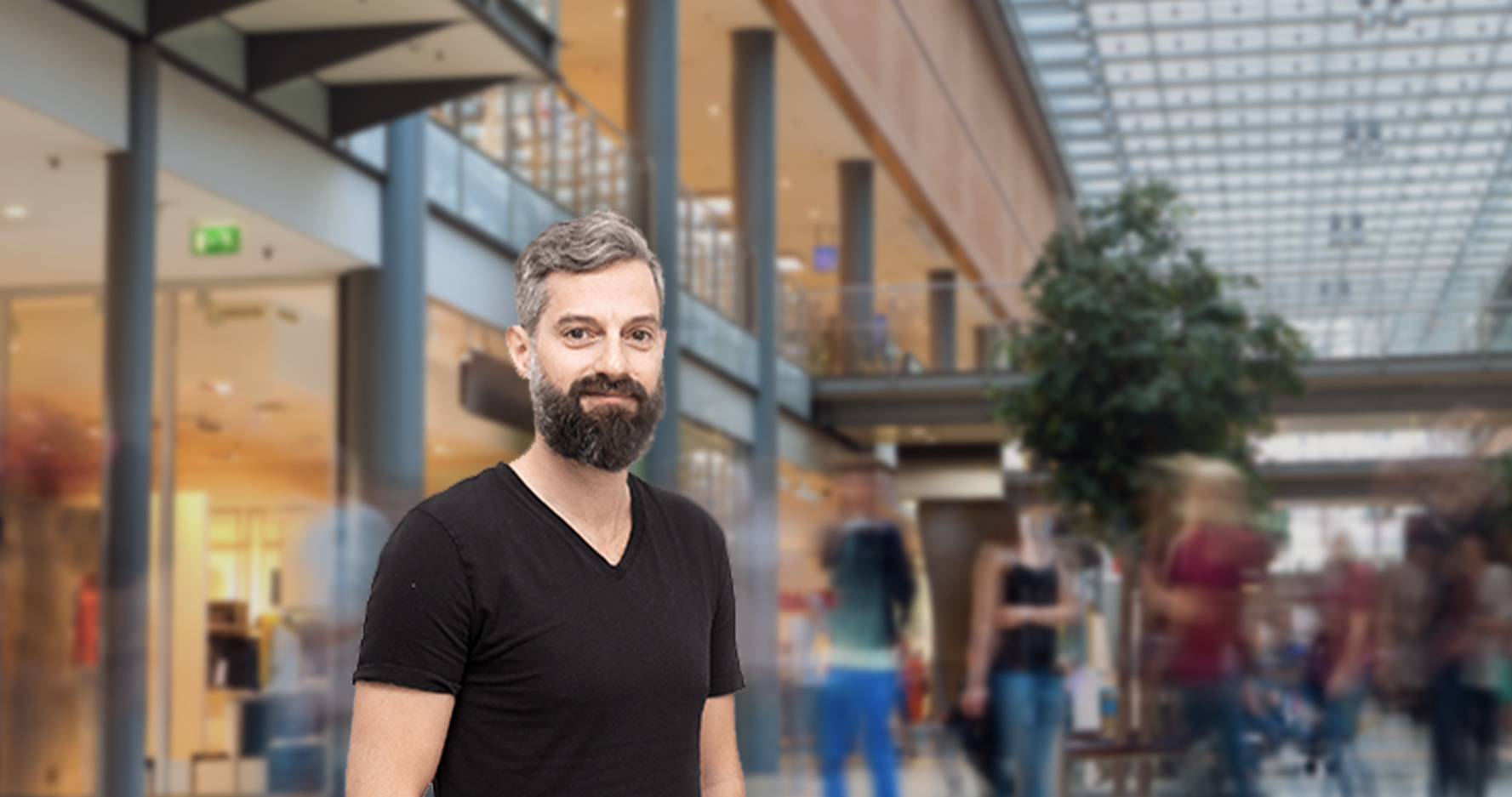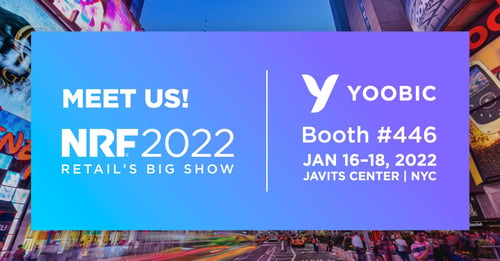Jan 6, 2022 12:42:13 PM
Retail | News & Trends
Jan 6, 2022 12:42:13 PM
Retail | News & Trends

Just a few days into 2022, and many of us are asking ourselves - will this year just be more of the same? A closer look reveals a subtle shift from reactive to proactive and a retail industry that’s more resilient than ever.
We chatted with our CEO, Fabrice Haiat, about the role of stores, frontline employees, and continuing to succeed during the great resignation.

COVID has highlighted two trends. The first is that people still like to shop and dine out, and they're migrating back to physical locations because of the experience.
Secondly, it has highlighted the need for stores to be more efficient and make sure that they can retain talent. Overcoming the Big Resignation has become overwhelmingly critical for retail.
We've had confirmation that retailers will be here for a long time if they’re delivering an experience worth coming in-store for. To achieve this, retailers need to update their operational processes to drive performance at scale and make sure they're taking care of all their employees who, in turn, take care of their customers.
Companies need to refocus on their frontline employees. For the last 5 years or so, the frontline employee experience has typically been last on the list of company priorities.
But now, retailers are realizing that it's frontline employees who deliver the brand experience in-store. They need to be trained, engaged, motivated, and retailers need to make them feel important.
In 2022, it will be all about how you take care of your people, how you help them progress, and how you create a career path within retail.
20 years ago, people were starting a career in retail because they knew that if they were performing well, they'd be promoted again and again. This has disappeared over the last few years.
Retailers need to revive this kind of internal promotion and growth structure. Even if they have a pool of talented people, they have to be retained if the company is going to perform well. These people know the brand's culture, and they know how to talk about the brand and products - these things take time to nurture. Keeping retail employees around has never been more business critical.
"In 2022, it will be all about how you take care of your people, how you help them progress, and how you create a career path within retail."
Overcoming the labor shortage is all about team efficiency, especially when it comes to the most laborious and time consuming tasks and processes, such as store tasks and checklists.
Checking compliance with visual merchandising guidelines is one of these processes that soaks up a lot of limited store associate time. By digitizing VM compliance checks, retailers are giving store teams valuable time that they can spend on customer-facing activities and drastically increase compliance rates across the store network. So not only can fewer employees do more with less time, but brand standards and customer experience are improving too.
In a labor shortage, time is such an important resource because it’s so limited when there are fewer employees.
We’ve seen retailers take on labor shortages by augmenting frontline teams with tech. This means that each employee can do more with fewer resources.
For example, if you can increase the number of stores that a regional manager is overseeing by implementing digital touch points with their stores, then you can increase their efficiency by 30 - 50%.
Indeed, regional managers usually spend 60% of their time traveling, so if you create more digital touch points with stores, they'll have more opportunities to coach and build relationships with stores. This doesn't mean you'll cut out travel completely, but you can reassign some of the time spent traveling into higher-value activities.
"Overcoming the labor shortage is all about team efficiency"
Stores are both the hub of a retailer’s omnichannel strategy and the flagship of a brand’s experience. Frontline employees are the facilitators of that experience, so this year we’ll definitely continue to see an evolution of their roles from transactional ones to relationship builders and brand ambassadors. It’s going to become increasingly critical for retailers to arm their teams with the information and tools they need to continue evolving and taking on new responsibilities.
It will also be critical for employers to keep raising the bar on the frontline employee experience as roles evolve. We're just at the beginning of the Great Resignation. Talented frontline workers will be more difficult to find and to keep. The pandemic has shown us that working on the frontlines is, and always has been, a tough job. But considering this, the employee experience retailers are providing isn’t levelling up.
People in stores have the lowest wages of anyone working at a retail company, but they're the ones making it happen. We're already seeing an increase in labor costs to keep those employees motivated and engaged.
"We’ll definitely continue to see an evolution of frontline employee roles from transactional ones to relationship builders and brand ambassadors."
Keeping connected with friends and family through tech has become the status quo since COVID.
Employees now expect the same level of connection and interaction in their jobs. The pandemic accelerated digitization so quickly in people's personal lives. This has triggered employee expectations to find something very similar in their working lives.
With a digital workplace, employees are connected with their peers, they can share tips and best practices, they can be rewarded when they're performing well, and they can connect with anyone at any level of the company to ask questions - even the CEO. A digital workplace transforms culture by making communication structures less hierarchical across the board and helps to build a community even with teams in many different locations.
"With a digital workplace, employees are connected with their peers"
AI has massive potential for empowering frontline teams. It's about augmenting what frontline employees can do, giving them superpowers and guiding them in their day-to-day jobs to be able to deliver the perfect customer experience. This happens through an easy-to-use virtual assistant powered by AI.
For example, AI can detect patterns in sales across locations, flag up when specific products aren’t selling as well as they should be, and generate notifications for store teams to investigate further. Putting AI in the hands of store teams in this way is empowering, because they become more autonomous.
"AI has massive potential for empowering frontline teams."
It helps them to focus their limited time on more value-added tasks and bring more value to the business and for themselves as individual employees. When people are doing well at work, they feel more empowered, fulfilled and less stressed out.
My main priority is growth. We're back to a phase of significant growth of the YOOBIC team which is always exciting. We have more than 40 open roles at the moment.
Expanding in new regions like Italy and Spain and accelerating growth in the US will bring a lot of opportunity.
In terms of product, my priority is to keep making it as simple and easy-to-use as possible, so we can onboard all store employees immediately without any training. Even if the platform is powered by algorithms and AI, I want the user experience to be as intuitive as possible.
I want to keep the focus on deskless, frontline employees, and build something that's made specifically for them.
Related: YOOBIC Raises $50 Million to Continue Redefining the #futureofwork
"My priority is to keep making YOOBIC as simple and easy-to-use as possible"
It makes me proud that we're back to hyper growth at YOOBIC despite COVID not being completely over. Developing our people and hiring new talent are very inspiring to see.
Changing the way frontline teams are working on a daily basis is a constant source of inspiration. I love going into a store using YOOBIC and asking the employees what they think about the platform. I love getting their feedback.
It’s been really inspiring to see retail leaders putting the pride and passion back into retail careers, and exploring what it means to work in retail from a frontline employee perspective. This is so important, because for brick and mortar retail to keep pushing the bar higher, people actually have to want to work in stores.
Industry veterans like Ron Thurston, author of the book Retail Pride, are undertaking exciting initiatives in this regard, like touring the US to find the untold retail success stories and meet the incredible people behind them.
--
Want to see how 300+ retailers like Peloton, Lacoste, and UNTUCKit are using the YOOBIC digital workplace to empower their frontline retail teams in 2022?

Search the blog
Popular Posts

See why 350+ businesses are using YOOBIC
YOOBIC creates a better everyday working experience for frontline teams while helping businesses drive performance at scale.
PRODUCT
See why 350+ businesses are using YOOBIC
YOOBIC creates a better everyday working experience for frontline teams while helping businesses drive performance at scale.